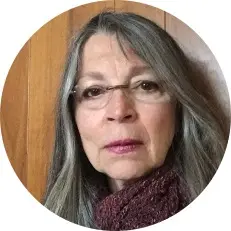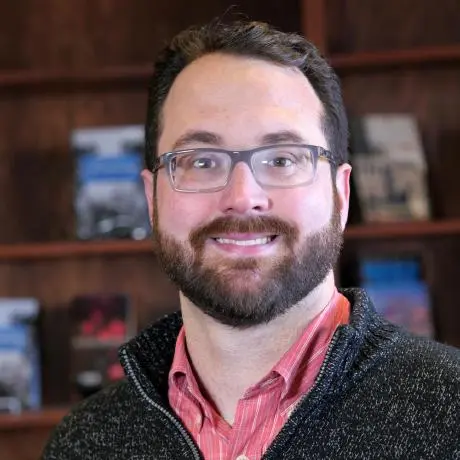S04E01: Unearthing the Foundations: Examining Native American Legal Battles and the Doctrine of Discovery
In this confernece recording Paula Johnson, Peter d'Errico, Joseph J. Heath, and Steven T. Newcomb discusson the legacy and impact of Johnson v. M'Intosh.

Philip P. Arnold
Syracuse University

Sandra Bigtree
Indigenous Values Initiative

Adam DJ Brett
Indigenous Values Initiative
Permalink: https://dofd.fyi/p/s04e01/
Abstract
Our hosts Philip P. Arnold and Sandy Bigtree speak with Paula Johnson, Peter d'Errico, Joseph J. Heath, Steven T. Newcomb - In this confernece recording Paula Johnson, Peter d'Errico, Joseph J. Heath, and Steven T. Newcomb discusson the legacy and impact of Johnson v. M'Intosh.
Introduction #
We begin this episode with a land acknowledgement.
This podcast episode is a recording of Law Panel III Federal Anti-Indian Law from the conferece The Religious Origins of White Supremacy: Johnson v. M’Intosh and the Doctrine of Christian Discovery. During this panel, the panelists discuss the Doctrine of Discovery and its impact on Indigenous peoples. They highlight the need for greater integration of these discussions in law schools and the importance of challenging the doctrine in legal cases. The panelists also address the issue of plenary power, which grants the US government absolute authority over Indigenous nations. They argue that the doctrine of Christian discovery and domination is still actively used to take Indigenous lands and disrupt their resources. The panelists emphasize the need to challenge these doctrines and raise awareness about their ongoing impact.
Don't forget to leave us a review wherever you get your podcasts.
Video #
We also have video of this episode if you want to watch instead.
Show Notes #
In a profound exploration of Native American legal battles, the latest episode delves into the historical and ongoing challenges faced by Indigenous communities in the United States. This episode brings to light the underrepresented narratives of Native American representation in law and how the Doctrine of Discovery has continued to shape their rights.
Our esteemed guests, Peter d'Errico, Steven T. Newcomb, and Joseph Heath, bring a wealth of expertise to the table, providing listeners with an enhanced understanding of federal anti-Indian law and the implications of historical legal decisions like the Marshall Trilogy. The conversation critically examines how language and historical narratives have been employed to assert control over Indigenous peoples and critiques the mainstream media's complicity in maintaining these systemic dominations.
The episode boldly addresses the concept of decolonization, emphasizing the spiritual significance of land to Indigenous peoples and the necessity of acknowledging their efforts to heal and decolonize. This leads to an insightful analysis of the McGirt decision, which confirmed that most of Oklahoma remains an Indian reservation. Justice Gorsuch's opinion, which notably omits the term "plenary power," signifies a departure from previous court rulings that upheld the racist and religiously supremacist ideologies embedded in the Lone Wolf decision of 1903.
Justice Clarence Thomas's skepticism regarding US sovereignty over Native lands echoes through the discussion, pointing to a fundamental shift in perspective that challenges established legal doctrines. The episode culminates with a thought-provoking debate on the implications of US citizenship for Indigenous identity and the potential for empowerment through citizenship of an Indian nation.
The panel does not shy away from critiquing the historical context and its present-day manifestations. It delves into the 1910 decision against the Montaukett people and the continued use of the Christian discovery doctrine to justify the appropriation of Indigenous lands in contemporary times. From the ongoing battle for Apache land at Oak Flat to the disruptions faced by the Navajo Nation, this highlights that the struggle for recognition and justice is as pressing today as ever.
The discussion concludes with an invitation for listeners to join in a collective call for awareness and action. By understanding the intricate intersection of law, sovereignty, and identity within Native American communities, the episode encourages a shift in consciousness that recognizes the inherent rights and sovereignty of Indigenous peoples. It is an urgent reminder that the battle against systemic oppression is far from over and that the fight for Native American justice and land rights must continue with renewed vigor.
Overall, this episode is a clarion call for law schools, litigants, journalists, and legislators to wake up to the realities of political domination and to challenge the historical narratives that have long been accepted without question. It serves as a potent reminder of the resilience of Indigenous communities and the ongoing efforts to assert their rights and identity in the face of legal and political challenges.
Correction #
Pierson v. Post happened on Shinnecock lands.
Resources #
- Marshall Trilogy
- Lone Wolf v. Hitchcock
- McGirt v. Oaklahoma
- Onondaga Nation Land Claim
- Steven T. Newcomb
- Peter d'Errico
- Joseph J. Heath
- RedThought
- Bethany R. Berger, It’s Not About the Fox: The Untold History of Pierson v. Post, 55 Duke Law Journal 1089-1143 (2006) Available at: https://scholarship.law.duke.edu/dlj/vol55/iss6/1
- Pierson v Post https://nycourts.gov/reporter/archives/pierson_post.htm
Credits #
- Music: Onondaga Social Dance songs performed by Orris Edwards and Regis Cook
- Producers: Jordan Loewen-Colón and Adam DJ Brett
- Show notes: Adam DJ Brett
Published : 02 December 2024
Keywords
podstwos
Law
Indian-law
Indigenous
How to Cite
Philip P. Arnold and Sandra Bigtree, "S04E061: Unearthing the Foundations: Examining Native American Legal Battles and the Doctrine of Discovery," _Mapping the Doctrine of Discovery_ (Podcast), February 03, 2024.
https://dofd.fyi/p/s04e01/
Share
Information

